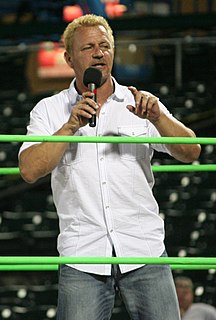A Quote by Andres Manuel Lopez Obrador
It is not true that Pena is 20 points above me. It's part of the management of the regime. They have control of the media, with few exceptions.
Related Quotes
One day I'd have 20 points, the next day two points. I was dribbling the ball off my leg. I couldn't understand why. The media started asking me, 'Is this because you are a new dad?' I didn't want to blame my son. There are plenty of people in much worse situations, and they make it work. I have to do that, too.
Control and surrender have to be kept in balance. That's what surfers do - take control of the situation, then be carried, then take control. In the last few thousand years, we've become incredibly adept technically. We've treasured the controlling part of ourselves and neglected the surrendering part.


































